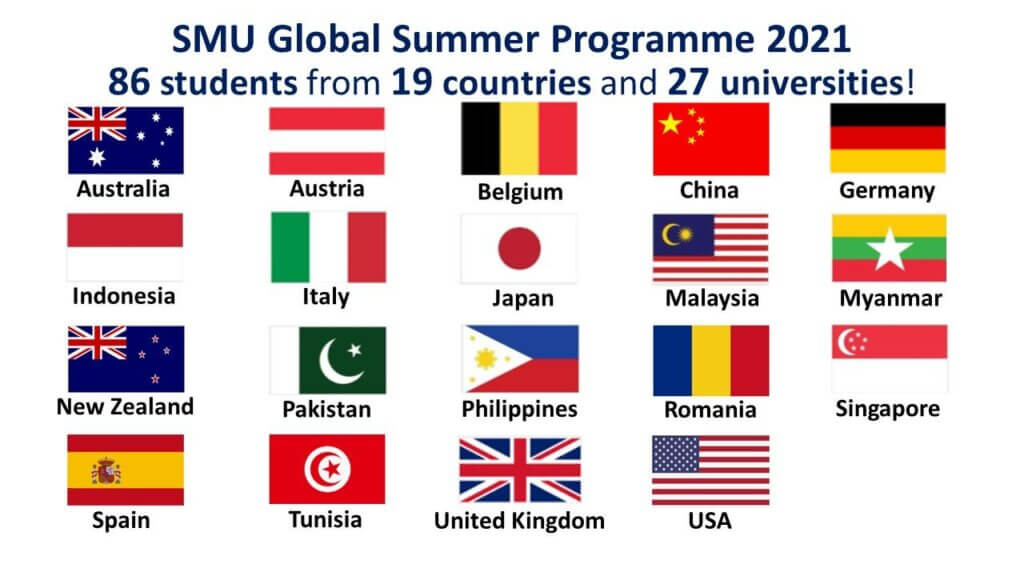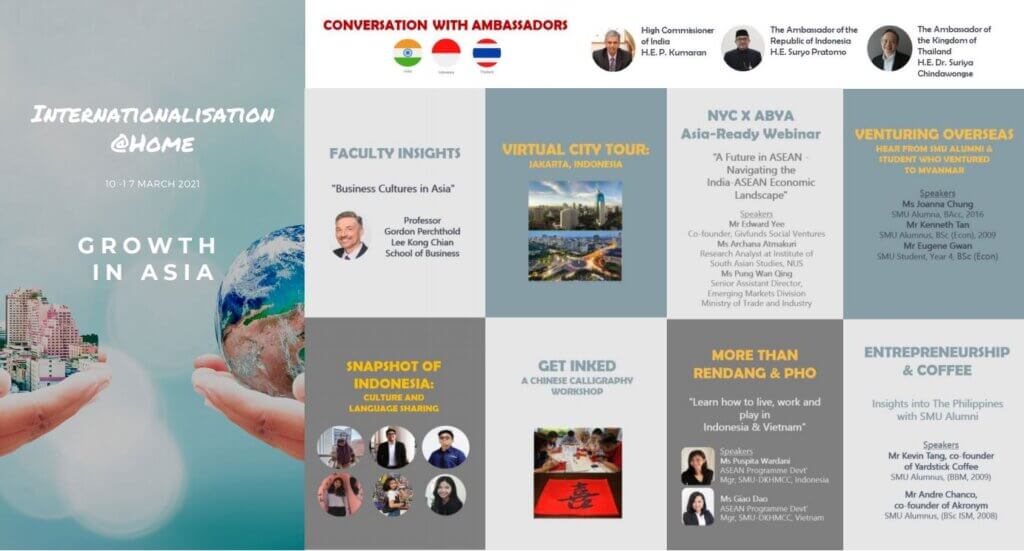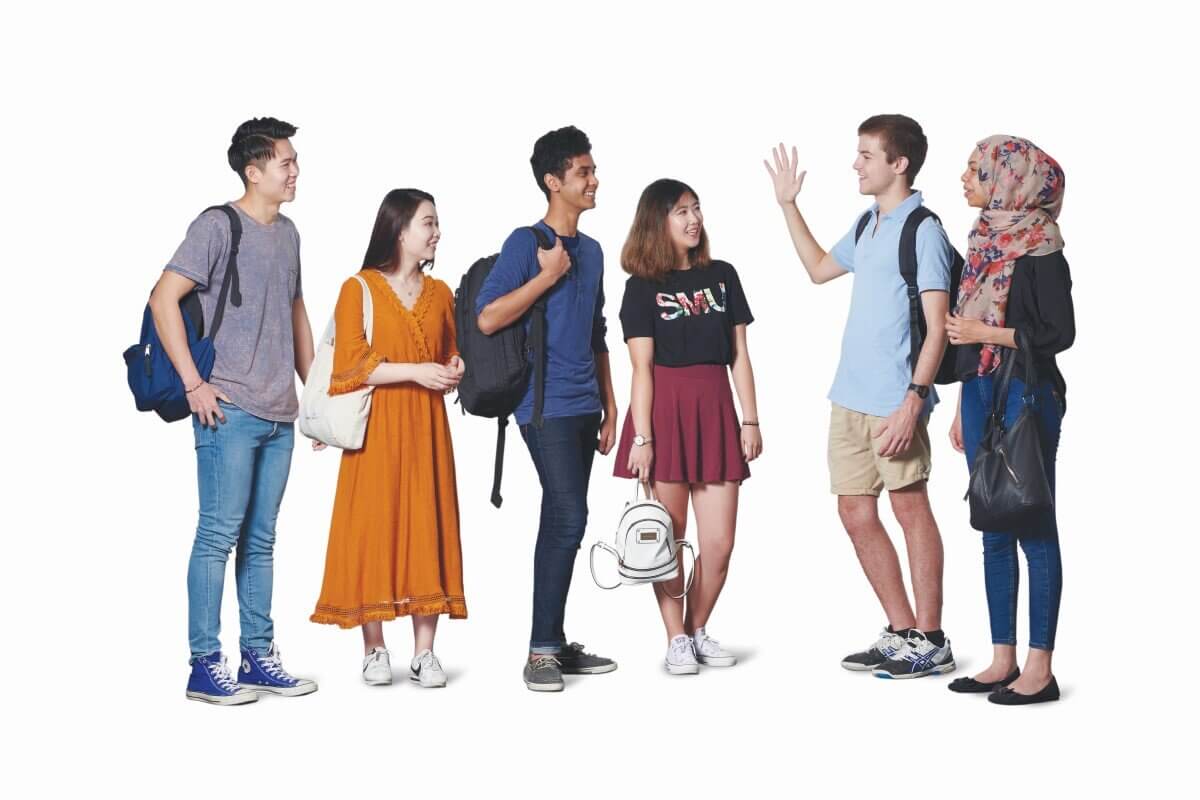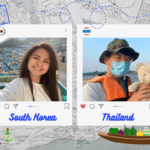By the SMU International Office
With the world facing an unprecedented health crisis in the form of Covid-19, students from all corners of the world have had to put on hold their plans to pursue an in-person international education as borders and even some campuses remain closed.
At the Singapore Management University (SMU), where global exposure underpins one of its Graduate Learning Outcomes, the pandemic had undoubtedly disrupted traditional student mobility programmes. But all is not lost. In April 2021, SMU Provost Professor Timothy Clark announced a new global exposure framework, specially designed for students to develop global exposure learning outcomes even without the need for physical travel.
Under this new framework, three categories of global exposure programmes will cater to the diverse needs and interests of SMU students to help develop in them the necessary skills, knowledge, attitudes and networks to become global-ready. Category A comprises immersive overseas activities requiring physical travel, while Category B activities are remote but involve considerable two- or multi-way engagement and are conducted over a few days. Category C comprises limited two- or multi-way engagement that may be completed in a single sitting or day.
To suit the different learning needs and interests of SMU students, numerous global exposure programmes are offered within each category by different SMU units. Popular Category A activities managed by the International Office such as the International Student Exchange Programme (ISEP) and the Short-Term Study Programmes (SSP) are both credit-bearing programmes that used to allow students to experience a different pedagogical environment with SMU’s partner universities, while receiving other benefits of global exposure.
ISEP
ISEP held virtually is now a Category B activity. In Term 2 of Academic Year 2020/2021, 84 SMU students participated in the Virtual Student Exchange (VSE) programme with seven of our partner universities from six countries. A further 64 students embarked on collaborative online international learning with their peers from universities in the US and Israel.
Goi Jia Jian, a Year 4 student from the SMU School of Computing and Information Systems, had participated in the VSE programme with the University of St. Gallen, Switzerland.
“The VSE was a valuable experience where we had to work virtually with students from the other side of the world on a group project. We had to learn to be mindful of vastly different time zones and cultural differences – that was really helpful for me because in my internship later on, I too had to work with co-workers from around the world,” shares Jia Jian.
While students take only one course with the partner university on the VSE programme, students on the Virtual International Student Exchange Programme (Virtual ISEP), starting in Term 1 of Academic Year 2021/2222, will take a full term’s load. The annual Study Abroad Fair and OASIS are platforms where students can learn more about SMU’s exchange programmes.
SSP and other Category B programmes
Over the summer break, IO had also coordinated different types of Category B SSP opportunities. Credit-bearing opportunities include virtual summer exchanges with partner universities. Non-credit-bearing virtual immersion programmes, organised by the National Youth Council, Tsinghua University, Zhejiang University and National Research University Higher School of Economics (HSE University in Russia), were also popular with students.
Playing virtual host

The diversity of students participating at GSP 2021 enabled a richer exchange of perspectives and culture, and the opportunity to build friendships and networks from around the world
Back home, IO welcomed 86 students from 19 countries and 27 universities to the sixth edition of SMU’s Global Summer Programme (GSP). Held virtually for the first time, government organisation and industry leaders and experts from the region were invited to share their knowledge on a range of topics related to theme of ‘Asian Insights’, which helped to further enrich the students’ virtual experience at SMU. Some 41 SMU students participated in the programme, benefiting from cross-cultural interactions with international peers and broadening their networks.
Internationalisation@Home

First introduced in Term 1 of Academic Year 2020/21, “Internationalisation@Home” started as an expansion of the University’s “Diverse-City” cultural event
To allow students to gain global exposure even amid an ongoing pandemic and the suspension of overseas programmes, IO recently launched the second edition of the week-long Internationalisation@Home (IAH) programme. Themed ‘Growth in Asia’, it focused on the ASEAN member states, China and India, or ACI. In Prof Clark’s words, “…the recent and future economic growth in ACI is noteworthy and the talks organised this term will enhance our knowledge of developments in these countries, particularly in the rapidly evolving areas of Innovation and Industry”.
With such IAH activities recognised as Category C activities, SMU students can look forward to more meaningful cultural and intellectual experiences that will aid them in becoming global-ready and responsible citizens.
Given that the Covid-19 situation still prevails globally and will continue to have a significant impact on our daily lives and how the University operates for some time, SMU has shifted its suite of global exposure programmes to virtual formats where possible. The University looks forward to resuming all programmes physically when the situation improves, and when it is safe for our students to travel again.
Learn more about ISEP and SSP here. SMU students interested in future runs of the alternative global exposure programmes can look out for application emails from the International Office.










